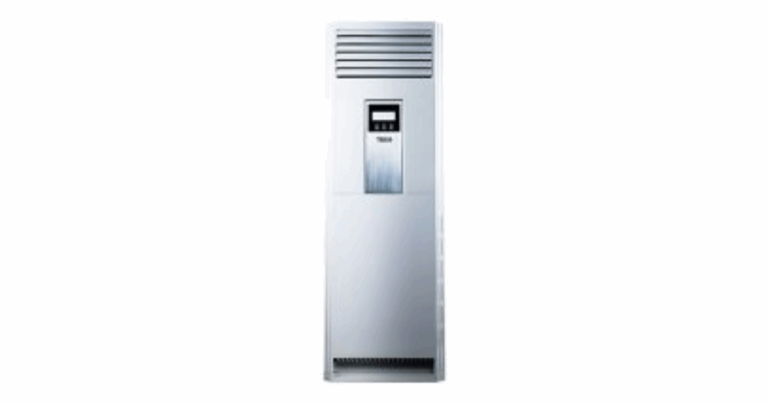Commercial Real Estate CRM: Streamlining Operations and Enhancing Client Relationships
The commercial real estate industry is fast-paced, with constant transactions, numerous clients, and evolving market trends. To keep up with the complexities of the sector, real estate professionals need a system that can handle a range of responsibilities, from managing client interactions to tracking properties and deals. This is where a Commercial Real Estate CRM (Customer Relationship Management) system comes in.
A CRM specifically designed for commercial real estate is essential for professionals looking to stay organized, improve client relationships, and drive growth. This article explores the benefits, features, and considerations for implementing the best Commercial Real Estate CRM in your business.
What is a Commercial Real Estate CRM?
A Commercial Real Estate CRM is a software tool designed to help real estate agents and agencies manage their day-to-day activities, including lead generation, client management, property tracking, and sales reporting. This specialized CRM is built to cater to the unique needs of the commercial real estate industry, offering features that help streamline communication, facilitate collaboration, and optimize operational efficiency.
Commercial real estate professionals deal with complex transactions and long sales cycles, which can make client relationship management particularly challenging. A CRM helps these professionals track interactions, document property details, and ensure timely follow-ups, creating a seamless process from lead generation to closing deals.
Key Features of a Commercial Real Estate CRM
1. Lead and Contact Management
A robust CRM system allows commercial real estate professionals to manage all leads and contacts in a centralized database. Whether it’s a potential buyer, seller, or investor, CRM systems provide real-time insights into the status of each lead. Users can categorize contacts by property interests, communication history, and stage in the sales cycle, enabling better segmentation and personalized communication.
2. Property and Listing Management
Managing property listings is a central aspect of the commercial real estate business. A CRM designed for this purpose includes features to track property details, availability, and market value. Professionals can update and organize listings, monitor property status, and share property information with clients instantly. Some CRM systems even offer integrations with MLS (Multiple Listing Service) databases, allowing for automated updates.
3. Pipeline and Deal Tracking
Commercial real estate deals often have long and complex pipelines. A CRM helps real estate professionals track where each deal is in the sales process and manage important deadlines, meetings, and negotiations. The system can also provide detailed insights into how long each stage of the deal is taking, helping agents predict closing times and adjust their strategies accordingly.
4. Automated Communication
A Commercial Real Estate CRM enables agents to automate communication with clients. Whether it’s sending email updates, reminders, or marketing materials, a CRM can ensure consistent and timely communication. For instance, automatic notifications can alert agents about upcoming meetings or follow-ups, reducing the risk of missing important engagements.
5. Analytics and Reporting
The best Commercial Real Estate CRMs come with advanced analytics and reporting tools that help professionals assess their business performance. Users can generate reports on sales performance, lead conversion rates, property valuations, and client satisfaction. These insights allow businesses to make informed decisions, allocate resources effectively, and identify areas for improvement.
6. Collaboration Tools
In the commercial real estate world, many deals involve multiple stakeholders, including colleagues, investors, legal teams, and property managers. A CRM system facilitates collaboration by providing tools to share documents, track project progress, and assign tasks. This helps ensure that everyone involved in the deal has access to the latest information and can work together seamlessly.
7. Customizable Dashboards
Real estate professionals can often be juggling multiple properties, clients, and deals at once. With a CRM, users can customize their dashboards to highlight key metrics and activities. This flexibility allows agents to focus on the most important tasks at any given time, boosting productivity and staying on top of critical developments.
Benefits of Using a Commercial Real Estate CRM
1. Improved Client Relationships
By providing detailed records of every interaction with clients, a CRM system enables real estate agents to deliver a more personalized service. Agents can reference past communications, preferences, and specific needs, ensuring that clients feel heard and valued throughout their journey. This leads to increased client satisfaction and loyalty, which is crucial in retaining clients and generating referrals.
2. Enhanced Productivity
A well-implemented CRM automates many time-consuming tasks, allowing agents to focus on higher-value activities. With automated reminders, follow-ups, and email campaigns, agents can stay organized and never miss an important deadline or opportunity. Additionally, the centralization of all client and property data means agents can access everything they need in one place, reducing administrative work.
3. Better Lead Management
A Commercial Real Estate CRM enables real estate agents to better manage leads by tracking their activities and behaviors. With features like lead scoring and lead nurturing workflows, agents can identify the most promising prospects and prioritize them. This targeted approach increases the likelihood of converting leads into deals, improving overall sales performance.
4. Increased Sales and Revenue
By improving client management, streamlining processes, and enhancing communication, a CRM helps to close deals faster and more efficiently. A well-maintained pipeline and deal tracking system ensure that agents don’t lose track of any deals and are able to follow up at the right times. With better organization, agents can focus on maximizing their sales potential, which ultimately increases revenue for the business.
5. Informed Decision Making
Access to real-time data and insights is a major advantage of using a CRM. By analyzing reports on sales trends, client behavior, and market conditions, real estate professionals can make better decisions regarding their strategies, marketing efforts, and business development activities. A CRM helps identify areas where performance can be improved and offers a data-driven approach to growth.
6. Mobile Accessibility
Many commercial real estate professionals are frequently on the move, whether they’re attending property viewings or meetings. A mobile-friendly CRM allows agents to access client and property data, manage communications, and update records on the go. This mobile accessibility ensures that agents can stay connected and productive even when they are away from their office.
Key Considerations When Choosing a Commercial Real Estate CRM
1. Integration Capabilities
Commercial real estate professionals rely on a variety of tools and platforms, such as email marketing software, MLS listings, and accounting systems. When choosing a CRM, it’s important to consider how well it integrates with other systems already in use. A seamless integration can save time, reduce errors, and ensure that all data is up-to-date across platforms.
2. Customization Options
Every commercial real estate business has unique needs, so having a CRM that can be tailored to specific workflows and preferences is crucial. Look for CRM software that allows you to customize fields, reports, and user permissions to suit your specific requirements.
3. Scalability
As your commercial real estate business grows, your CRM needs may evolve. Choose a CRM that can scale with your business, whether that means adding more users, handling a greater volume of data, or expanding to new markets. A scalable system ensures that the CRM remains useful as the business expands.
4. User-Friendly Interface
A CRM system should be easy to use and navigate, even for those who are not tech-savvy. Look for a system that provides a clean, intuitive interface and offers customer support and training to ensure that your team can quickly adopt and maximize the tool.
5. Customer Support
Good customer support is essential for any software tool, and a CRM system is no exception. When selecting a CRM, check the support options available, including live chat, email support, phone assistance, and access to a knowledge base. Reliable customer service ensures that any issues can be resolved quickly, minimizing downtime and disruption.
Conclusion
The right Commercial Real Estate CRM can be a game-changer for real estate professionals looking to streamline their operations, improve client relationships, and increase sales. By providing a centralized platform for managing leads, properties, deals, and communications, a CRM system ensures that agents can stay organized, productive, and efficient.
With the ability to track and manage every aspect of the business, from lead generation to closing, a CRM empowers real estate professionals to deliver exceptional service and drive growth. Whether you’re a small agency or a large real estate firm, a well-chosen CRM is an invaluable tool that can enhance the way you do business in the competitive commercial real estate market.







